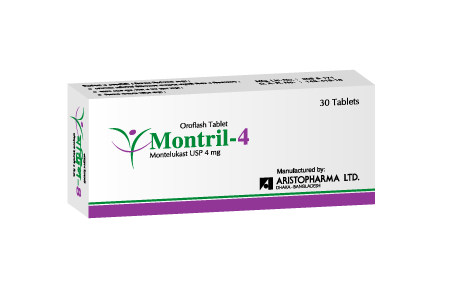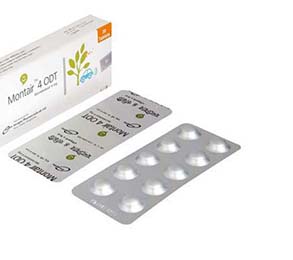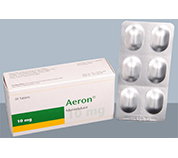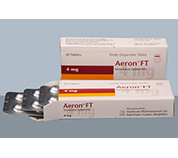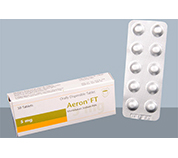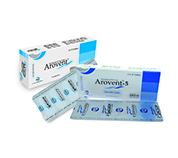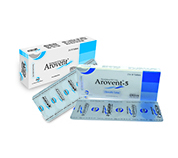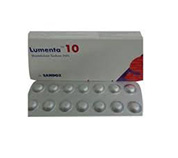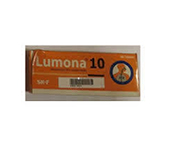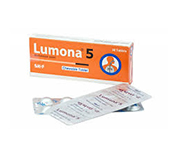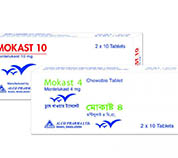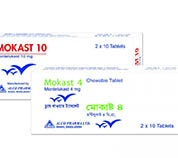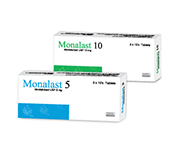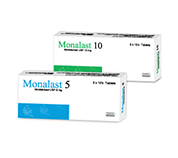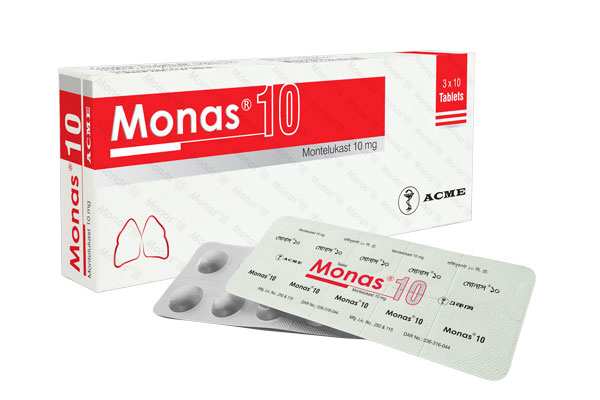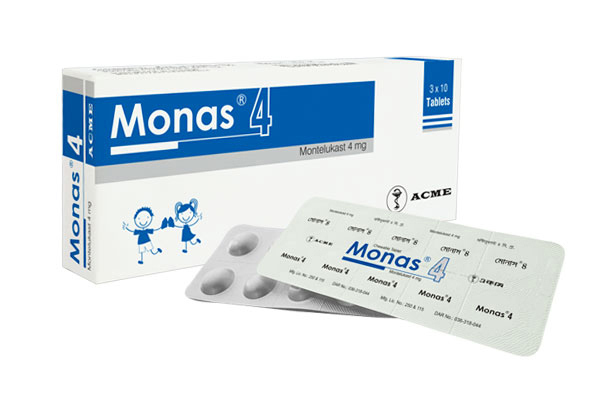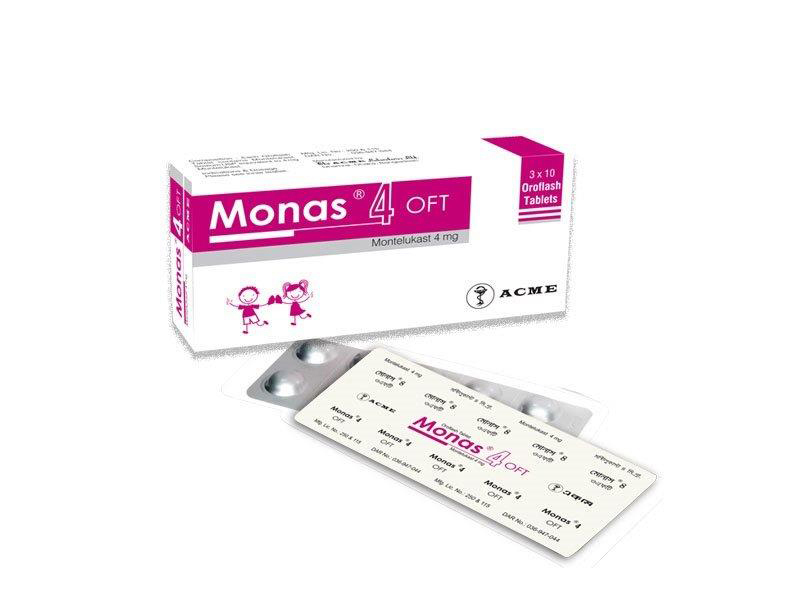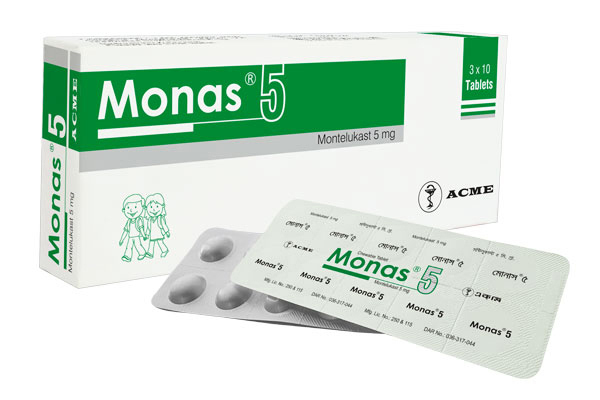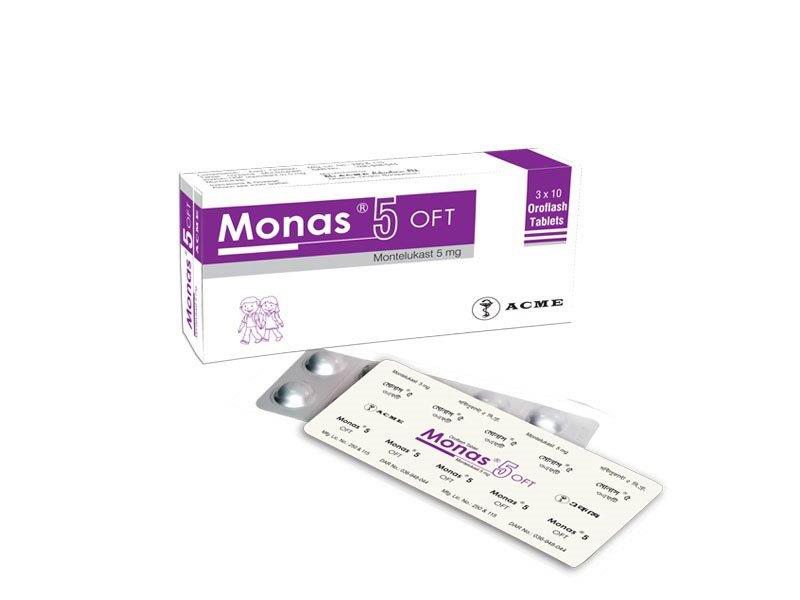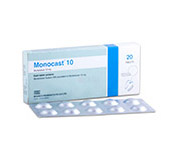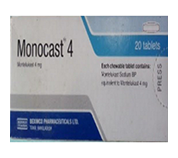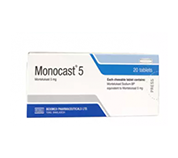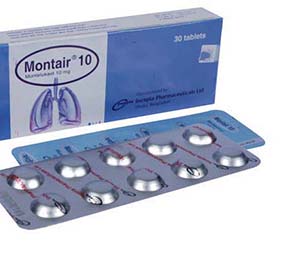Montril 4mg Tab 10 Pcs
Alternative products
Indications
Montelukast is indicated for-
- The prophylaxis and chronic treatment of asthma in adults and paediatric patients 12 months of age and older.
- The relief of symptoms of seasonal allergic rhinitis in adults and paediatric patients 2 years of age and older.
* চিকিৎসকের পরামর্শ অনুযায়ী ঔষধ সেবন করুন
Therapeutic Class
Leukotriene receptor antagonists
Pharmacology
Montelukast is a selective leukotriene receptor antagonist that inhibits the effects of cysteinyl leukotrienes in the airways. Cysteinyl leukotrienes and leukotriene receptor occupation have been correlated with the pathophysiology of asthma, including airway oedema, smooth muscle contraction, and altered cellular activity associated with the inflammatory process, which contribute to the signs and symptoms of asthma.
Dosage & Administration
General information: Montelukast should be taken once daily. For asthma, the dose should be taken in the evening. For seasonal allergic rhinitis, the time of administration may be individualised to suit patients needs. Patients with both asthma and seasonal allergic rhinitis should take only one tablet daily in the evening.
Adults and adolescents 15 years of age and older with asthma or seasonal allergic rhinitis: The dosage is one 10 mg tablet daily.
Paediatric patients 6 to 14 years of age with asthma or seasonal allergic rhinitis: The dosage is one 5 mg tablet daily. No dosage adjustment within this age group is necessary.
Paediatric patients 2 to 5 years of age with asthma or seasonal allergic rhinitis: The dosage is one 4 mg tablet daily.
Paediatric patients 12 to 23 months of age with asthma: The dosage is one 4 mg tablet daily to be taken in the evening. Safety and effectiveness in paediatric patients younger than 12 months of age have not been established.
* চিকিৎসকের পরামর্শ অনুযায়ী ঔষধ সেবন করুন
Interaction
Montelukast has been administered with other therapies routinely used in the prophylaxis and chronic treatment of asthma with no apparent increase in adverse reactions. In drug interaction studies, the recommended clinical dose of montelukast did not have clinically important effects on the pharmacokinetics of the following drugs: Theophylline, Prednisolone, oral contraceptives (Norethindrone 1 mg/Ethinyl Oestradiol 35 mg), Terfenadine, Digoxin, and Warfarin.
Although additional specific interaction studies were not performed, Montelukast was used concomitantly with a wide range of commonly prescribed drugs in clinical studies without clinically evident adverse interactions. These medications included thyroid hormones, sedative hypnotic, non-steroidal anti-inflammatory agents, benzodiazepines, and decongestants.
Phenobarbital, which induces hepatic metabolism, decreased the AUC of Montelukast approximately 40% following a single 10 mg dose of Montelukast. No dosage adjustment for Montelukast is recommended. It is reasonable to employ appropriate clinical monitoring when potent cytochrome P450 enzyme inducers, such as Phenobarbital or Rifampin, are co-administered with Montelukast.
Contraindications
Montelukast is contraindicated to patients with hypersensitivity to any component of this product.
Side Effects
Adolescents and Adults 15 years of age and older: In placebo-controlled clinical trials, Montelukast has been evaluated for safety in approximately 2600 adolescent and adult patients of 15 years and older, the following adverse experiences reported with Montelukast occurred in greater than or equal to 1% of patients.
- General: Asthenia/fatigue, Fever, Pain
- Gastrointestinal: Dyspepsia, Gastroenteritis; Nervous System/Psychiatric: Dizziness, Headache
- Respiratory System: Congestion, Cough, Influenza
- Skin: Rash; Laboratory adverse experiences: ALT increase, AST increase, Pyuria.
Paediatric patients 6 to 14 years of age: In paediatric patients receiving montelukast, the following events occurred with a frequency 2% are diarrhoea, laryngitis, pharyngitis, nausea, otitis, sinusitis, and viral infection. With prolonged treatment, the adverse profile did not change significantly.
Pregnancy & Lactation
Pregnancy: Montelukast crosses the placenta following oral dosing in rats and rabbits. There are, however, no adequate and well controlled studies in pregnant women. Because animal reproduction studies are not always predictive of human response, Montelukast should be used during pregnancy only if clearly needed.
Lactation: It is not known if Montelukast is excreted in human milk. Because many drugs are excreted in human milk, caution should be exercised when Montelukast is given to a nursing mother.
Precautions
Montelukast is not indicated for use in the reversal of bronchospasm in acute asthma attacks (in case of status asthmaticus). Patients with known aspirin sensitivity should continue avoidance of aspirin or other NSAID, while taking Montelukast.
In rare cases, patients on therapy with Montelukast may present with systemic eosinophilia, sometimes presenting with clinical features of vasculitis consistent with churg-strauss syndrome, a condition which is often treated with systemic corticosteroid therapy. Physician should be alert to eosinophilia, vasculitic rash, worsening pulmonary symptoms, cardiac complications, and/or neuropathy presenting in their patients. A causal association between Montelukast and these underlying conditions has not been established.
Overdose Effects
Symptoms: Abdominal pain, somnolence, thirst, headache, vomiting, and psychomotor hyperactivity.
Management: Supportive and symptomatic treatment. If indicated, unabsorbed material should be removed from the GI tract.
Use in Special Population
Paediatric use: Safety and efficacy of Montelukast has been established in adequate and well controlled studies in paediatric patients with asthma and allergic rhinitis between age 1 to 14 years. Long term trials evaluating
the effect of chronic administration of Montelukast on linear growth in paediatric patients have not been conducted.
Geriatric use: Of the total number of subjects in clinical studies of Montelukast, 3.5% were 65 years of age and over and 0.4% were 75 years of age and over. No overall differences in safety or effectiveness were observed between these subjects and younger subjects. But greater sensitivity of some older individuals cannot be ruled out.
Storage Conditions
Store at 25° C. Protect from moisture and light.
- Type Tablet
- Tag
- Morbi leo risus
- Porta ac consectetur ac
- Vestibulum at eros
